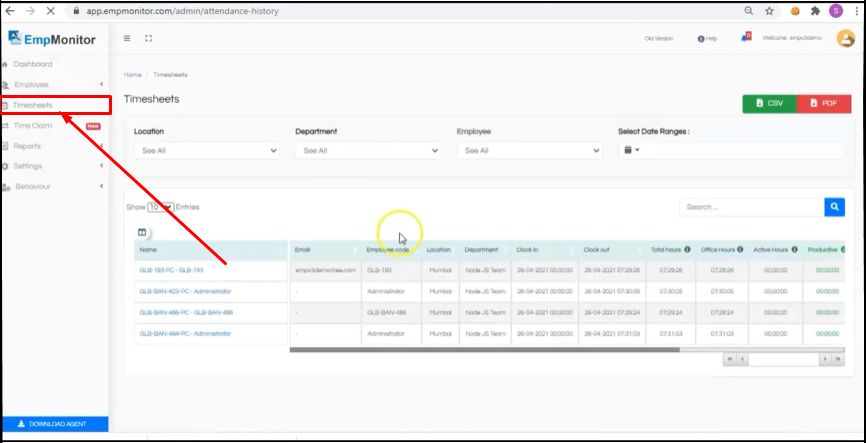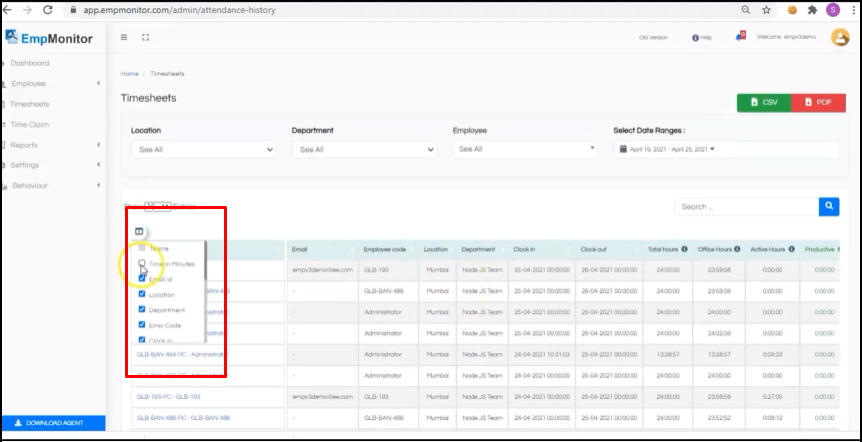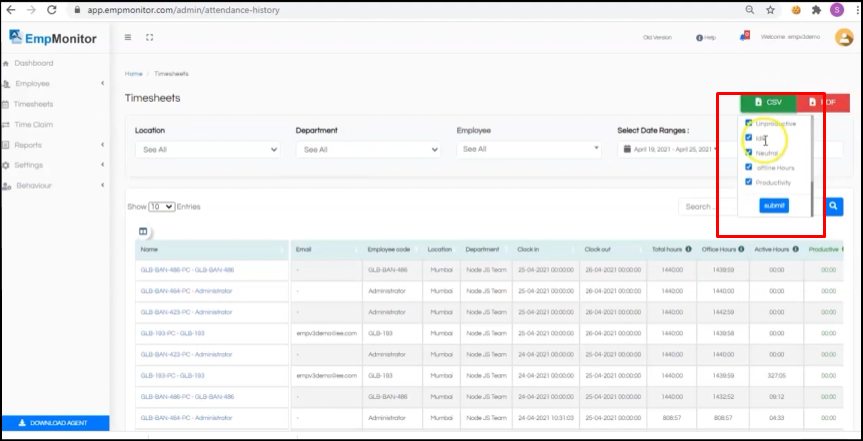Let’s cut to the chase: Smart work goals examples might help you reach your goals. How? Because it can help you create goals that produce outcomes.
Goal setting is undeniably the light of your life that shows the road to achievement. It enlightens you with guidance & direction, facilitating planning, motivating and inspiring employees, and helping evaluate and control performance.
Some goals, on the other hand, may not be as valuable or well-thought-out as others. Believe me or not, unrealistic goals might cause a complete reversal of the process if they are either overly or underly ambitious. The unreliable setting of goals can somehow be demotivating and become equally problematic in their own way.
With that said, What is your goal? Are you stuck somewhere in the chaos of managing your employees? Are you in a dilemma on how to get a promotion? How to achieve other milestones you want?
Well! Well! Well! All your questions will get an answer today with the Smart work goals examples that this blog has to offer. After all, the more goals you achieve, the more you will see yourself grow and improve your personal and professional life.
How To Set A Goal With SMART Work Goals Examples
SMART objectives, which stand for specified, measurable, achievable, relevant, and timely, are used in employee evaluations to improve performance management.
It is a step-by-step approach for setting and accomplishing objectives and can be used in connection with assessments and performance reviews to help you get there. Below are the Smart goals examples for work that you must implement right now!
01- Specific SMART Goals
It is not uncommon for goals that clearly specify output expectations to turn out to be successful ones. Your objectives should be clear and explicit. Consider what has to be given, how much needs to be delivered, and what the standards are for assessing delivery when creating goals.
- Try to address the following questions when creating your objective.
- What do you want to achieve?
- Then why is it so crucial to achieving your goal?
- What resources or limitations are at stake in this situation?
Example:
Let’s say you are a marketing executive who wishes to advance to the position of marketing director. You can draft a goal that says, “I want to obtain the abilities and expertise necessary to become the head of marketing inside my business so that I can grow my career and manage a successful team.”
02- Measurable SMART Goals
As soon as you have a clear objective in mind, you must assess if the goals have been fulfilled or not. It is an exceptional way for you, as a manager and team member, to keep track of success in the workplace.
As long as there are no criteria, it is impossible to gauge your progress or determine if you are on track to reach your objective. Consider the following questions when attempting to quantify a goal:
- Approximately how many?
- Do you know when you have achieved your goal?
- What is my metric for measuring my own progress?
Example:
You can write down a goal that says- I want to get the best out of my teammates as a manager. Every week, I will aim to assess and evaluate the performance of the team in terms of their active hours & productive hours.
How To Measure The Progress Of SMART Goals:
Establish Metrics
Metrics have shown to be a terrific tool for managing performance. As a manager, you have no way of knowing if your team is performing up to par without established measures.
Have Meetings
It is hard to get someone to do anything if they don’t want to. Meetings may be a chance for people to get together, reflect on their progress, and help each other out in any way they can. It can be in the form of weekly status updates, monthly objectives and key results, and problem-solving meets.
Leverage time-tracking Tools.
With so much manual work, it is not an easy task to keep track of every goal. Therefore, tools like EmpMonitor can serve you a big deal. With features like Timesheet Management, Productivity Calculation, Comprehensive Reporting, Project Management, and many more.
Let us have a look at how you can get the most out of the timesheet feature of EmpMonitor, with just a few clicks.
1- Login to your EmpMonitor dashboard with your login credentials.
2- Click on the Timesheets option. You can customize the sheet layout by days or weeks.
3- Put a checkmark on the option you want in the columns.
4- You can download the reports in CSV or PDF format and also customize the timesheet report from the dropdown option. Hit the submit button.
5- Your timesheet report will be downloaded. All you need to do is just click on the downloaded file, and you can see your timesheet report.
03- Achievable SMART Goals
Have you created a realistic goal for yourself? Setting realistic objectives that you can achieve within a reasonable timeframe can help you stay motivated and on track. Think about your goals before you start working towards them and consider if you can attain them right now or whether you need to take additional preparation measures to be better prepared.
Then ask yourself
- Do I have what it takes to attain this goal?
- What am I missing?
- Is it something that others have done successfully?
Example:
Let’s say you want to be able to give presentations with confidence. You can set objectives like this: “To enhance my presentation abilities, I will practice them at least twice a month and record and watch them. Prepare my presentations in advance and seek trustworthy colleagues for their comments on my delivery.” Furthermore, to make it achievable, ” Ask yourself, do you have the time to complete the required training effectively? Are the necessary resources available to you? Can you afford to do it?
04- Relevant SMART Goals
Goals must be relevant and linked with the organization’s broader goals and employee responsibilities in order to be effective. In simple words, objectives should be valuable and aligned with the company’s overall strategy or SMART goals.
A relevant objective is one that can answer “yes” to the following questions:
- Is it worth all the effort?
- Has the appropriate moment arrived?
- Is this in line with our other efforts/needs, or not?
- Am I the right person to achieve this goal?
Example:
Suppose you have assigned your employees a number of tasks to do in a week that are nearly impossible for any employee to accomplish. These kind of work goals examples of completing the tasks in a week would be completely irrelevant if it does not lead to productive results.
05- Timely SMART Goals
In order to qualify as SMART, a goal must be time-bound. A lack of urgency and lack of desire will result if the objective is not time-constrained. Ask yourself:
- Do I have a deadline for achieving my goals?
- How much time is appropriate for my tasks?
Example:
“I started my first blog two days ago, and I intend to start my second blog in two days. My goal is to complete four blogs every week.” If you are willing to set goals that you wish to achieve, all you need to do is attach specific dates to your goals as deadlines. Make sure you are open to making changes in your daily schedule. However, keep in mind that the time frame is really essential for achieving your goals.
So, that’s a wrap-on how to hit work goals examples. Let us quickly get into why it is essential to have Smart goals in the workplace.
Also, check out our latest blogs:
WHAT IS A HYBRID WORKPLACE: 07 BEST PRACTICES TO BUILD A MODEL THAT WORKS
What Is The Importance Of Setting Work Goals Examples In The Workplace?
Now that you have a few Smart work goals examples in mind, let us have a look at how important it is to set work goals. Below are a few of the most beneficial deliveries that work goals can offer.
Motivates Employees
No end in sight or ambitions can strain the mental well-being when people have to go to work every day. All of a sudden, everything starts to seem the same, and everyone goes through the motions.
However, a simple approach to keep your employees engaged at work is to set goals for them. Employee morale can be harmed by a lack of a precise aim and purpose to strive towards, which has an influence on productivity. While on the other side, completing a goal keeps people motivated, as well as improving themselves.
Facilitating Business Planning
Planning your business is made easy when you have goals to work towards: You may set a goal to take your firm to the next level, but with more consideration, you discover that this is not possible given the existing number of employees. Therefore, part of your planning may include hiring new employees.
Keep you on the right track
Your work or project will be easier to complete if you know what you are aiming for: In order to keep yourself motivated, you might refer back to your objective regularly. If you have goals to set for yourself at work, it will assist you to go forward in the path you desire. So if you need to develop a new training guide for employees or complete a specific task, you may look at how long it will take each day or week to accomplish that objective. This reminder can help you meet your deadline.
A Unified Purpose
Everyone wants to feel like a vital cog in the wheel. One way you can make it happen is by enlisting the help of every employee in the strategic planning process to make sure every employee is aware of their role in the business.
With said that transparency in the formulation of goals and objectives would do wonders for enhancing workplace culture. Clearly stated work goals examples for each employee connected to the broader business plan guarantee that everyone understands what they are working towards and how essential teamwork is to achieving goals.
Goals Promote Teamwork
Not only does creating objectives help keep individuals on track, but it also encourages people to work When everyone has the same objective, they are more likely to work together to achieve it.
Limiting Stress and Maintaining Focus
The setting of goals can assist in relieving tension. And as you already know, it is easy to get distracted from the most crucial aspects of your business when you do not have goals to guide you. A sense of anxiety might develop as a result of realizing that your total output is deteriorating.
Final Thoughts
Why do Smart work goals examples turn out to be effective? In short, they can assist you in defining your objectives and ensuring that you take the required measures to achieve them.
You may not achieve all of the SMART goal steps in the exact order that you planned, and trust me, that is not something you should worry about: Setting SMART goals can be a bit challenging for organizations. However, A well-thought-out plan and devotion, though, may make a big difference. For your team’s performance, each step should be logical, and consider arranging the steps in the order that best matches your vision.
Consider the above SMART work goals examples to build alignment within a company, increase job performance, and improve yearly evaluations.
The time has come for you to shine! If you have not already done so, spend a few minutes setting a SMART objective that will take you closer to your dream life or business.
So, how’s it going? What is your new SMART goal? Do share in the comments section below!














